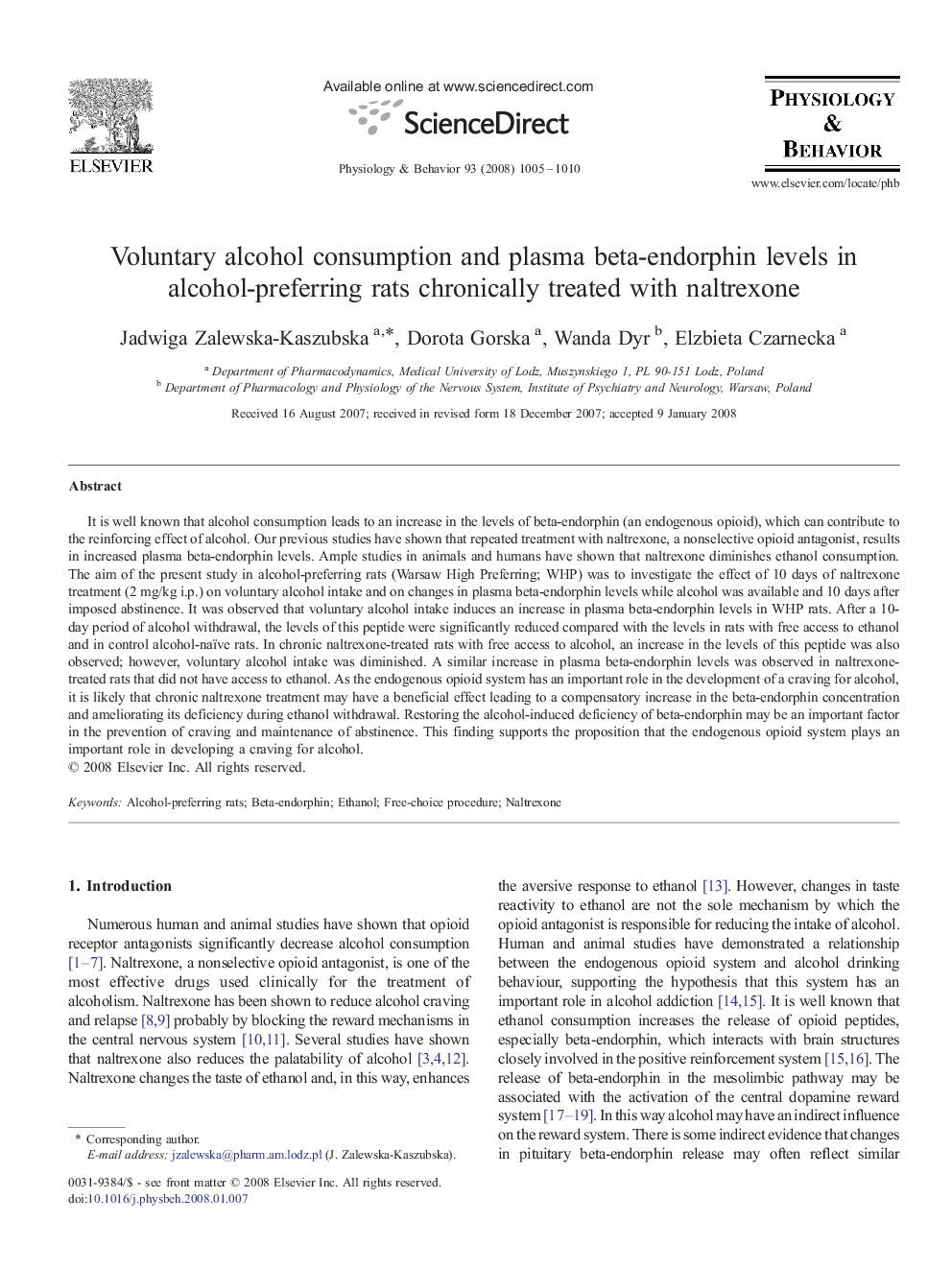| کد مقاله | کد نشریه | سال انتشار | مقاله انگلیسی | نسخه تمام متن |
|---|---|---|---|---|
| 2845571 | 1571213 | 2008 | 6 صفحه PDF | دانلود رایگان |

It is well known that alcohol consumption leads to an increase in the levels of beta-endorphin (an endogenous opioid), which can contribute to the reinforcing effect of alcohol. Our previous studies have shown that repeated treatment with naltrexone, a nonselective opioid antagonist, results in increased plasma beta-endorphin levels. Ample studies in animals and humans have shown that naltrexone diminishes ethanol consumption. The aim of the present study in alcohol-preferring rats (Warsaw High Preferring; WHP) was to investigate the effect of 10 days of naltrexone treatment (2 mg/kg i.p.) on voluntary alcohol intake and on changes in plasma beta-endorphin levels while alcohol was available and 10 days after imposed abstinence. It was observed that voluntary alcohol intake induces an increase in plasma beta-endorphin levels in WHP rats. After a 10-day period of alcohol withdrawal, the levels of this peptide were significantly reduced compared with the levels in rats with free access to ethanol and in control alcohol-naïve rats. In chronic naltrexone-treated rats with free access to alcohol, an increase in the levels of this peptide was also observed; however, voluntary alcohol intake was diminished. A similar increase in plasma beta-endorphin levels was observed in naltrexone-treated rats that did not have access to ethanol. As the endogenous opioid system has an important role in the development of a craving for alcohol, it is likely that chronic naltrexone treatment may have a beneficial effect leading to a compensatory increase in the beta-endorphin concentration and ameliorating its deficiency during ethanol withdrawal. Restoring the alcohol-induced deficiency of beta-endorphin may be an important factor in the prevention of craving and maintenance of abstinence. This finding supports the proposition that the endogenous opioid system plays an important role in developing a craving for alcohol.
Journal: Physiology & Behavior - Volume 93, Issues 4–5, 18 March 2008, Pages 1005–1010